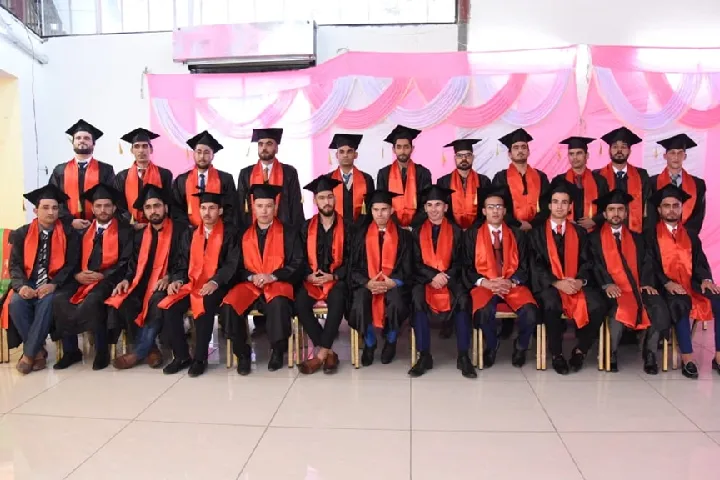As China eyes to dig deep into Afghanistan, India has to revisit its role in Afghanistan and strengthen “channels” with the Taliban regime to maintain regional influence. India has historically played a constructive role in Afghanistan and in recent years and has invested in several landmark development projects targeting humanitarian aspect of Afghan life.
Ever since the Taliban captured power, New Delhi has been juggling with different sets of ideas and experiments about how to frame its policies toward the country, where it wielded immense influence prior to August 2021.
In a latest development, the Indian government has announced 1,000 new scholarships for Afghan students for the 2023-24 academic year. The Indian Council for Cultural Relations, the implementing agency which is a part of the Ministry of the External Affairs (MEA), said that India “remains steadfast in its commitment to bolstering Afghan students’ educational pursuits.”
The sudden move by New Delhi seems to have prodded by seeming anger among Afghan students as some of them were unable to complete their education in India for the lack of financial back-up.
Besides China appointing a permanent ambassador in Kabul and focusing more on Afghanistan than Pakistan for its various BRI projects could also be a trigger.
Shanthie Mariet D’Souza, a visiting faculty at the Naval War College, Goa; and non-resident scholar at the Middle East Institute, said that New Delhi has to respond swiftly to this situation. “While New Delhi may take comfort from the fact that no single nation is capable of meeting all of Afghanistan’s needs, a strong Chinese and Pakistani presence in that country would certainly tilt the balance and minimise the space for any substantial Indian involvement,” she said.
India has responded cautiously, opting for a case by case approach to keep the Taliban in good humor. Apart from continuing with its humanitarian assistance, the Ministry of External Affairs included Taliban foreign ministry officials in an online training course. It has also offered technical support to the Afghan banking sector. However, New Delhi still remains wary of a full-scale engagement with the Islamic Emirate, which would indirectly mean endorsing the regressive policies of the Taliban regime.
It is, however, unclear if this cautious policy would change in the coming days, given the rapid growth in Chinese-Taliban relations. In this backdrop, the policy dilemma of whether to engage or recognise the Taliban is a different and difficult choice for New Delhi.
#India Watch: The Indian Council for Cultural Relations (ICCR) has announced 1000 scholarships for #Afghan students for the academic year 2023-24.
These scholarships will facilitate online education via Portal & cover various fields, including Business Administration, Commerce,… pic.twitter.com/GEQKKHSPxE
— South Asia Times (@SATimes_TV) September 17, 2023
India’s Humanitarian Afghan Reconstruction
Besides having historical and cultural links with Afghanistan, India has played a significant role in the reconstruction and rehabilitation of Afghanistan during and after years of war.
India is the 5th largest donor to Afghanistan, with $2 billion aid delivered so far.
India has played an active role in the development of Afghanistan based on the understanding that social and economic development in Afghanistan is crucial to regional stability. The principal objective of India’s development partnership is to assist in building indigenous Afghan capacity and institutions and to ensure that development touches all the regions of Afghanistan and encompasses all the sectors of development. All Indian projects have been undertaken in partnership with the Afghan government, in consonance with the Afghanistan National Development Strategy.
India’s programmes cover four broad areas – infrastructure projects, humanitarian assistance, small and community based development projects, and education and capacity development.
Most pivotal project is the 218 km road from Zaranj to Delaram in south-western Afghanistan to facilitate movement of goods and services to the Iranian border and, onward, to the Chabahar Port. This is the most strategically significant location for India.
India constructed the 202 kms long 220 KV DC transmission line from Pul-e-Khumri to Kabul and a 220/110/20 KV sub-station at Chimtala, bringing Uzbek electricity and lighting up the city of Kabul throughout the year.
The other two major infrastructure projects, the construction of the Afghan Parliament in Kabul and the construction of Salma Dam power project in Herat province were successfully completed and inaugurated by Prime Minister Narendra Modi.
Under humanitarian assistance, India supplies 100 gms of fortified, high-protein biscuits every day to each of the nearly two million school children in 33 of the 34 provinces of Afghanistan under a School Feeding Programme administered through the World Food Programme.
The Indian Medical Missions in the five major cities are providing free medical consultations and medicines to over 30,000 Afghans every month.
In education and institution development, as mentioned above, India has announced 1,000 scholarships, apart from 675 long-term university scholarships.
Similarly, another 675 annual short-term India Technical and Educational Cooperation (ITEC) training scholarships for Afghan public servants are provided in Indian technical and professional institutions. More than 20 Indian Civil Servants served as coaches and mentors under the Capacity for Afghan Public Administration programme supported by UNDP and the Governments of Afghanistan and India.
Another innovative programme was executed by the well-known Indian NGO, SEWA (Self-Employed Women’s Association), which built a Women’s Vocational Training Centre in Bagh-e-Zanana in Kabul for training of Afghan women (War-widows and orphans) in garment making, nursery plantation, and food processing and marketing.
Some of these projects besides others were interrupted in the mayhem that followed the return of Taliban. Later, the Taliban regime itself requested the Indian government to restart them. New Delhi responded in affirmative, but no concrete blueprint was announced. Now, the state of slumber seems to be over.




















